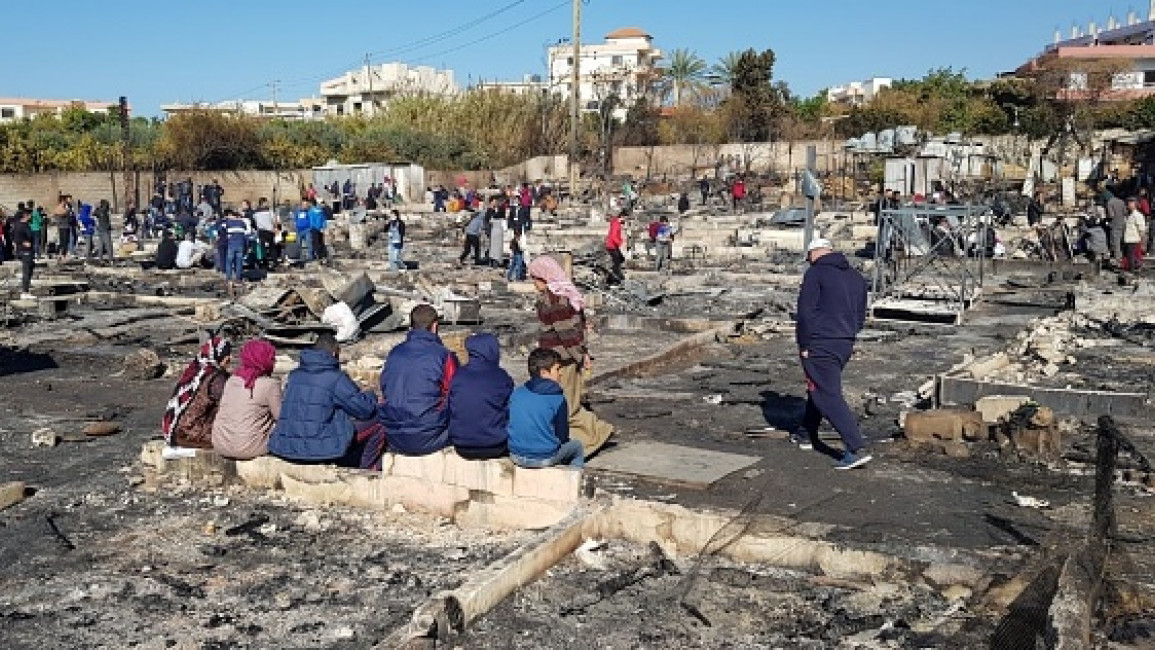Lebanon begins deporting Syrian refugees as rights groups warn they could 'face torture'
Lebanon deported the first batch of Syrian refugees on Wednesday as part of a new "repatriation scheme" that rights groups say puts refugees at risk of detention, torture, or worse in Syria.
Dozens of minivans left the town of Arsal in Lebanon for the Syrian border in the early hours of Wednesday, filled with hundreds of refugees and their belongings, AFP reported.
A first batch of around 750 Syrian refugees left Lebanon today for their home country under a new repatriation plan slammed by rights groups, via @AFP.
— Aya Iskandarani (@Aya_Isk) October 26, 2022
The latest repatriation effort, announced this month as a "voluntary" scheme, follows earlier such exercises since 2017.
Several rights groups have condemned the deportation plan, pointing out that the regime of President Bashar al-Assad has previously detained, tortured and executed people opposed to its rule.
French-Lebanese rights group Wassoul said it puts Syrian refugees and their families in danger of being arbitrarily detained and tortured and could violate Lebanon's commitment to the UN Convention Against Torture.
William Christou, The New Arab’s correspondent in Lebanon, said that the refugees' safety in Syria was not by any means guaranteed.
"The Lebanese government has said that Syria is a safe country for return, and says that it checks with Damascus to ensure that returnees are not wanted by Syria’s security forces," said Christou.
"Rights groups say unequivocally that Syria is not safe for refugee returns. Human Rights Watch and other rights monitors have consistently documented violations against returning Syrians by the regime – including arbitrary arrests, torture, and even death."
Christou said he has heard stories from neighbours and friends that returnees to Syria had disappeared without trace despite no indication they were wanted by regime security forces.
Sending refugees to Syria from Lebanon means to the Assad regime. In Dec 2017, Syrian refugees in Lebanon told me stories of people who did. For example, a
— Rena Netjes (@RenaNetjes) October 26, 2022
husband of a woman in Tripoli, who lives in a sort of cave house, returned to Syria and disappeared at the first checkpoint. https://t.co/Wwe2zRJYZk
Around two million Syrian refugees reside in Lebanon. Lebanon’s security agency said 400,000 have been repatriated in similar schemes since 2017, and expects roughly 750 refugees to be repatriated to Syria on Wednesday.
The Lebanese government has insisted that the scheme is voluntary and only those who choose to return will be sent to Syria although several rights groups argue this is not true.
"The Lebanese government insists that it is only conducting 'voluntary returns' of refugees but Amnesty International and others have objected to this, saying no return can be truly voluntary in Lebanon," Christou said.
"They point to a system of intentionally restrictive and structurally racist policies which are intended to act as a form of coercion to push Syrians to return to Syria."
Syria is not safe - the Lebanese authorities are knowingly putting Syrian refugees at risk of horrendous abuse and persecution if returned to Syria.https://t.co/wo9Y9n6FGE
— kristyan benedict (@KreaseChan) October 14, 2022
Christou says Syrian refugees in Lebanon have been blamed by politicians for the country's ongoing economic crisis.
"There has long been a tendency within the Lebanese political establishment to scapegoat Syrian refugees for problems in the country," said Christou. "Parts of the country’s elite view the refugees as a burden on the economic and financial resources of the country. This is not the first time that the government floats a refugee return plan."
A recent UN survey found that 77 percent of Syrian refugees in Egypt, Lebanon, Jordan, and Iraq would prefer to stay in the country they are currently in, with 16 percent saying they wished to go to other countries and 7 percent undecided.
Only 29 percent of refugees said they wished to return to Syria within the next five years.
Syria has been deemed not safe for return by human rights groups and the UN, due to continued human rights violations by the Assad regime and other actors in the Syrian conflict.
The conflict in the country is ongoing and 80 percent of Syrians live in poverty, with diseases such as cholera appearing in recent years.



